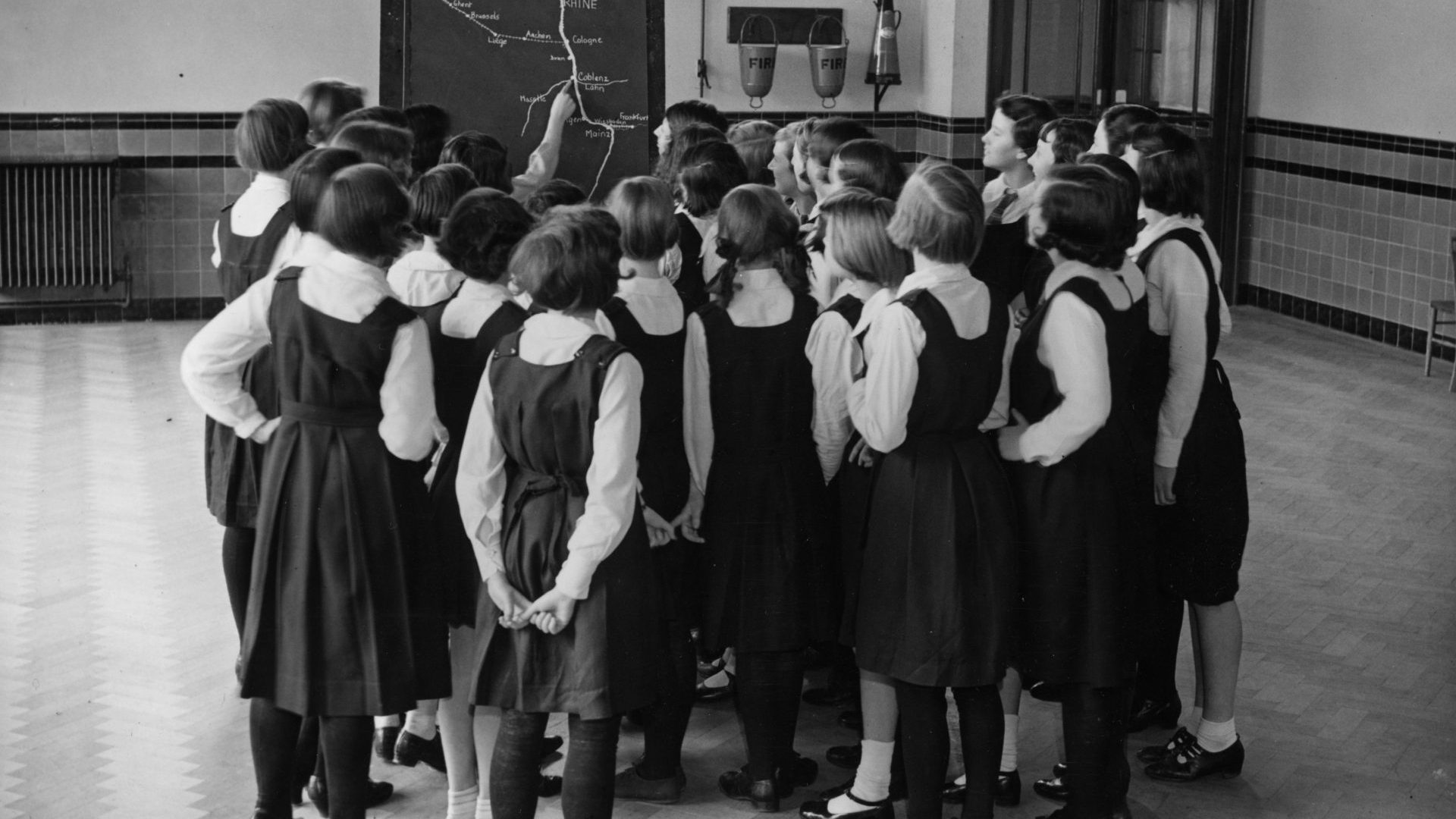The Grand Tour formed an important part of the education of British nobility throughout the 18th century. Travelling through Europe and experiencing the art, architecture and cultures of the different nations was considered to be a rite of passage for those approaching adulthood and, potentially, important positions in the running of the country.
Mathematics has its place, although probably not the pinnacle to which the prime minister would attach it, but for those who would thrive in the modern world, an education that is broad in arts and science and human understanding beyond the three Rs is surely the greatest gift.
A luxury tour stopping at the best hotels in Paris, Florence, Rome and, maybe, Athens, will be beyond the aspirations of most of today’s youngsters but a taste of that wider horizon should surely be on offer to as large a group as possible. It used to be and could so easily be again. School exchanges were a simple yet effective way for groups of children from the UK to experience life in a European city with local children and for those children in return to spend some time in a UK family.
For generations, these visits improved language skills but did so much more: mutual understanding flourished and long-standing relationships were established. Today’s youngsters are being denied the opportunities those exchanges afforded. They did not vote for Brexit but they are paying the price in so many ways and the curtailment of many exchange programmes is one of them.
For a class of children from the EU to come to the UK, each member of that class must now have a passport. Before the Brexit border came into force, an identity card would suffice. Passports are relatively expensive and not every child in an EU school classroom is likely to have one.
Given that most schools take the view that they like the entire class to share in the travel experience and will not discriminate against the passport-less child, a visit to the UK has become more problematic. The effects of the insistence on passports were entirely predictable and immediately apparent: schools looked for more hospitable hosts. The EU offers a welter of attractive destinations and, even if it is the English language that is one of the paramount reasons for the visit, there are still options: Ireland and Malta now find themselves far more popular than the UK for school parties.
Pressed to justify its position on not allowing EU children to visit with just an identity card, the government has resorted to arguing that the cards are “notoriously insecure” compared with passports. That argument might be relevant if the visitors involved were, for instance, a group of 30-year-olds from Romania who might just be planning a long-term, illegal, career in the UK’s car-wash sector. But what possible risk would be posed by a group of 14-year-olds travelling under the strict eyes of their teachers?
When the question was raised in the House of Lords last year, the then Home Office minister, Baroness Williams, could only resort to arguing that these junior visitors from the EU were just being treated in the same way that the UK treated visitors from elsewhere in requiring passports. But if the result of this approach is harming the UK’s interests, as it undoubtedly is, surely it is time to think again.
A House of Commons Library report last autumn showed that inbound school trips from the EU in post-Covid 2022 were 84% down on pre-Covid 2019 levels. School visits from the UK to the EU were less than 20% of the 2019 levels.
The damage goes beyond the detriment to children’s education and international understanding. Patricia Yates, chief executive of Visit Britain, estimates that the financial cost could top £3bn and that destinations such as Hastings, typically seaside towns that had a significant number of English language-teaching businesses, were being “absolutely decimated”.
The House of Commons Committee on Digital, Culture, Media and Sport recommended that the government should drop its insistence on passports for school trips and allow entry with a single group ID card. That was in October last year. While DCMS might have seen the wisdom of the suggestion, the Home Office clearly did not. But then this is the Home Office that determined a Mickey Mouse mural at a reception centre for unaccompanied child migrants was far too welcoming and therefore should be painted over.
Home secretary Suella Braverman seems intent on making the UK a hostile environment for many would-be visitors but not everyone in the UK shares her apparent view that a group of EU schoolchildren headed for a fortnight’s stay with UK hosts might pose a threat to national security. There is now a petition on the government’s website calling for a reversal of the ludicrous passports policy. I’ve signed it. If the UK is serious about trying to build better relations with its EU neighbours, then forging relationships between our children would be a good place to start.
“Let the children play,” Santana sang. And if the economy can benefit while the youngsters have fun, so much the better.




